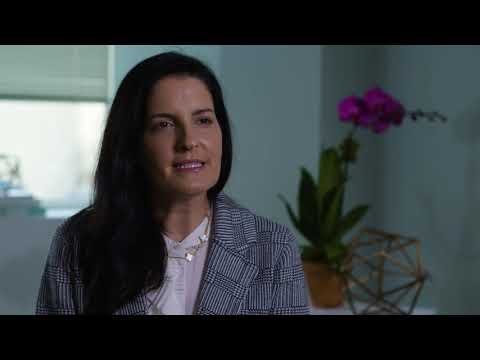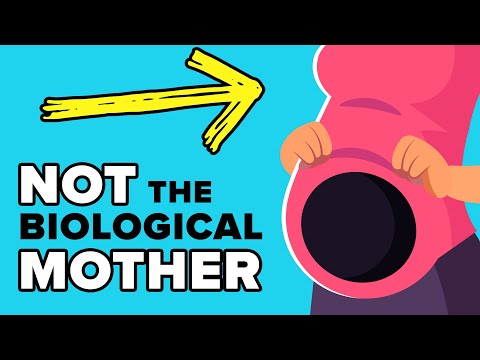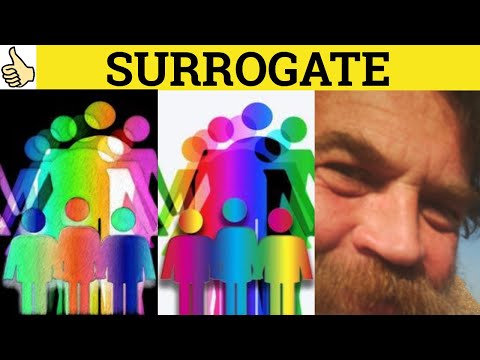When you hear the term surrogate definition, what comes to mind? Traditionally, it refers to a person who bears a child for another individual or couple. Whether through procedures like gestational surrogacy or traditional surrogacy, these arrangements showcase a growing shift in how we understand family. As more individuals and couples face fertility challenges, the surrogate definition has expanded, highlighting not just the logistics but the emotional and legal layers that intertwine with these journeys.
Understanding surrogacy today isn’t just about the mechanics of childbirth; it’s about redefining family structures in ways that many might not have imagined. For instance, with the rise of surrogates, the definition has morphed into a broader concept, emphasizing those emotional connections that often transcend biological ties. So, let’s explore how surrogacy fundamentally reshapes family dynamics!

The Role of Surrogates: Modern Family Dynamics
With society rapidly changing, the dynamics of family structures are evolving too. Surrogacy lies at the heart of this transformation, reigning as a significant player in reshaping norms. Here are the top five impacts of surrogacy on family dynamics:
Surrogacy’s magic is its ability to create diverse family configurations. Take celebrities like Elton John and David Furnish, who utilized a surrogate to become fathers. Their story underscores how non-traditional families can flourish, making society more inclusive regarding family definitions.
Surrogacy revolutionizes traditional parenting roles. Look no further than Ricky Martin, who stepped into fatherhood through surrogacy, challenging outdated perceptions of fatherhood based on gender norms. Together, these examples amplify how surrogacy reshapes who gets to be a parent.
The surrogacy journey often leads to authentic emotional ties. A telling example is showcased in the documentary “One More Shot,” which highlights how families involved in surrogacy can develop into tightly-knit units, forming friendships that blossom far beyond biological relationships.
Surrogacy isn’t a walk in the park—it’s interwoven with various legal frameworks. Certain states, like California, offer straightforward legal guidelines; others, such as Texas, make it trickier. As legislation adapts, families must navigate these shifts and challenges to understand their rights and responsibilities.
Surrogacy introduces an array of emotions that can leave everyone feeling on edge. The angst definition, which speaks to feelings of anxiety or apprehension, often surfaces for both surrogates and intended parents. Recognizing these psychological layers is crucial for everyone involved to mitigate stress throughout the surrogacy process.

Surrogacy and Its Intersection with Other Definitions
When discussing surrogacy, it’s important to note how it intersects with various definitions and contexts that shape our understanding of family and human bonds.
As society evolves, the senile definition brings new layers to parenting views. Older couples venturing into surrogacy highlight changing norms about the timing of starting a family, adding depth to our cultural conversations surrounding parenting.
Many couples considering surrogacy may encounter medical procedures like the EGD (esophagogastroduodenoscopy) procedure when grappling with infertility issues. Understanding these medical aspects expands the conversation about family formation, highlighting how surrogacy can fit into various health narratives.
The malaise definition, often referring to feelings of discomfort, may resonate with those navigating the emotional stresses of infertility and surrogacy logistics. Acknowledging this complex emotional landscape is vital for families finding their way through these waters.
While the tripe definition may relate to unnecessary chatter, discussions surrounding surrogacy occasionally spiral into unfounded stigma. Combating these biases requires ongoing education, encouraging dialogue that clarifies misconceptions about surrogacy and familial structures.

Transformative Narratives: Real People, Real Stories
Real-life stories can shed light on the profound impacts of surrogacy. One notable example is a couple featured in CBS’s “Surrogate Diaries.” Through their incredible journey, they transformed their heartbreak due to infertility into the hope and joy of parenthood via surrogacy. Their story speaks volumes about resilience and the transformative power of these relationships.

Envisioning the Future of Surrogacy and Family
As cultural acceptance of diverse family structures continues to expand, surrogacy will remain pivotal in this evolution. The future promises innovations in technology, enhanced legal protections for all parties involved, and broader acceptance of various family configurations. We’re edging toward a world where connection will take precedence over tradition.
In conclusion, the impacts of surrogacy on modern family dynamics are multifaceted, covering emotional, legal, and sociocultural dimensions. Recognizing the growing acknowledgment of diverse family structures will pave the way for a more inclusive future—one that prioritizes meaningful connections over conventional definitions. So, as you embark on your fitness journey to get shredded and gain muscle, remember the strength it takes to forge connections and redefine family in today’s world. Just like achieving that perfect six-pack, it takes dedication, resilience, and a willingness to embrace change!
For more insights on the journey of surrogacy and family definitions, explore resources like Diaries.

Surrogate Definition: Fun Trivia and Interesting Facts
The Basics and Beyond
The surrogate definition revolves around the concept of a woman carrying a child for another individual or couple. Surrogacy has become an increasingly popular option for families looking to grow, especially in modern society. It opens the door to diverse family dynamics, giving hopeful parents a means to overcome challenges like infertility. Interestingly, did you know that the word “liminal” relates to transitional spaces? Just as surrogacy represents a transition to parenthood, the Liminal definition captures that in-between experience, symbolizing new beginnings.
Cultural Context and Celebrity Insights
Surrogacy isn’t just a modern phenomenon; it’s a concept that crosses cultures and timelines. From ancient times to today’s headlines, the landscape is always changing. Consider the intriguing case of Sebastian Marroquin, who, as the son of the infamous Pablo Escobar, represents a unique family dynamic that’s worlds apart from traditional norms. Speaking of family, some people have pondered a rather fun question: Is Die hard a Christmas movie? Just like that film’s blurred lines between holiday cheer and action, surrogacy blurs traditional family boundaries, leading to rich, multifaceted relationships.
Surrogacy and Human Connection
As we dive deeper into the surrogate definition, it’s crucial to highlight the emotional aspect. Surrogates often develop profound bonds with the intended parents, forming connections rooted in empathy. But what is empathy, anyways? Well, to grasp it, one might want to check out the Empath definition, which emphasizes the ability to understand another’s feelings deeply. Tying this to sports, think about Saquon Barkley’s legs—such incredible strength can symbolize the robust physical and emotional support that surrogates provide to expecting families.
All in all, the journey of surrogacy encapsulates a rich blend of emotions, culture, and familial love—challenging our conventional notions and showcasing the beauty of parenthood in various forms. Just as Benimarus character showcases transformation and depth, the stories woven within surrogacy reflect an evolution in what it means to be a family today.

What does having a baby by surrogate mean?
Having a baby by surrogate means that a woman carries and delivers a baby on behalf of another person or couple. The surrogate agrees to carry the pregnancy, and after the baby is born, she gives the child to the intended parents.
What is the meaning of surrogate?
A surrogate is a woman who agrees to become pregnant and give birth to a child for someone else. This arrangement usually involves a legal contract defining her role and responsibilities.
Are surrogate babies biologically yours?
Surrogate babies are not biologically related to the surrogate mother unless she uses her egg. If the intended parents’ egg and sperm are used, the baby is biologically theirs.
What is the legal definition of a surrogate?
Legally, a surrogate is defined as a woman who enters into an agreement to bear a child for another person or couple. The details of this relationship can vary and are usually outlined in a contract.
Who is the biological mother of a surrogate child?
The biological mother of a surrogate child is typically the woman whose egg was used in the fertilization process. If a donor egg is used, the genetic connection is with the egg donor, not the surrogate.
Do surrogates get paid if they miscarry?
Surrogates often have contracts that specify payment conditions, which can include provisions for miscarriages. This means that some surrogates may receive a portion of their agreed payment even if the pregnancy doesn’t go to term.
Is a surrogate mothers DNA in the baby?
A surrogate mother’s DNA is not in the baby if she is carrying a child conceived with the intended parents’ egg and sperm. However, if her egg is used, she would be the biological mother.
How is a surrogate mother pregnant?
A surrogate mother becomes pregnant through assisted reproductive technologies like IVF, where an embryo created from the intended parents’ or donors’ egg and sperm is implanted into her uterus.
How does a woman get pregnant with surrogacy?
In surrogacy, a woman gets pregnant through IVF, which involves fertilizing an egg outside the body and transferring the embryo to the surrogate’s uterus.
Can a baby look like the surrogate mother?
Yes, a baby can look like the surrogate mother if her egg is used in the IVF process. If the intended parents’ egg is used, the baby is more likely to resemble them.
Who is the real mother of a donor egg baby?
The real mother of a donor egg baby is the woman who provided the egg. The surrogate carries and births the baby but has no genetic ties if she is not the egg donor.
Can a surrogate keep the baby if it’s her egg?
Generally, a surrogate cannot keep the baby if it’s her egg, as surrogacy agreements usually stipulate that she must hand over the child to the intended parents.
Is a surrogate considered the birth mother?
A surrogate is considered the birth mother because she carries and delivers the baby, but legally and biologically, the intended parents are regarded as the child’s parents.
What is the difference between IVF and surrogacy?
IVF involves fertilizing an egg to create an embryo, which may then be transferred to either the intended mother’s or a surrogate’s uterus. Surrogacy specifically refers to the arrangement of carrying a baby for someone else.
How much do surrogates get paid us?
Surrogates in the US can earn a range between $30,000 to $150,000 or more, depending on various factors like experience and location, along with any additional compensation for expenses related to the pregnancy.


























